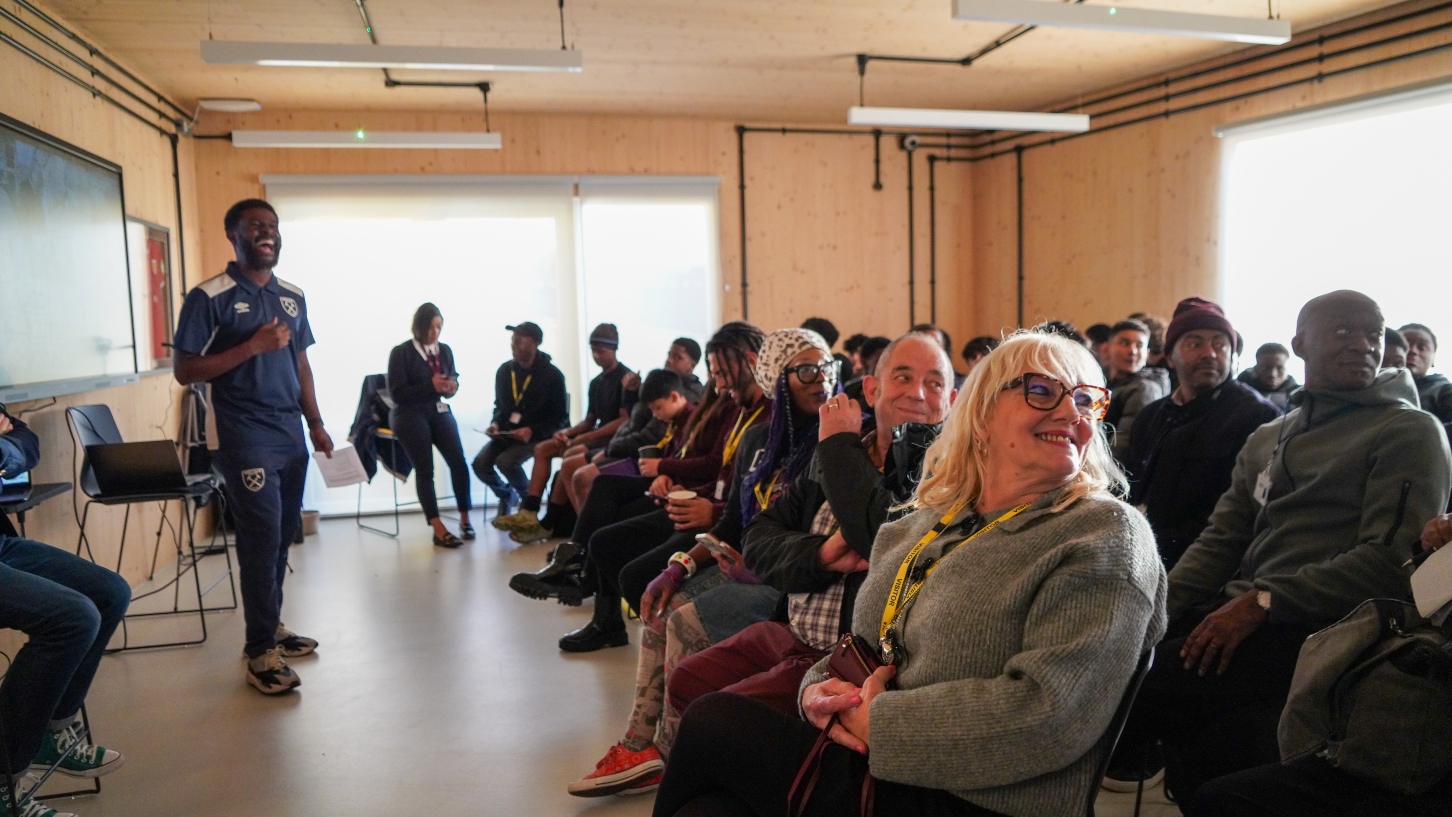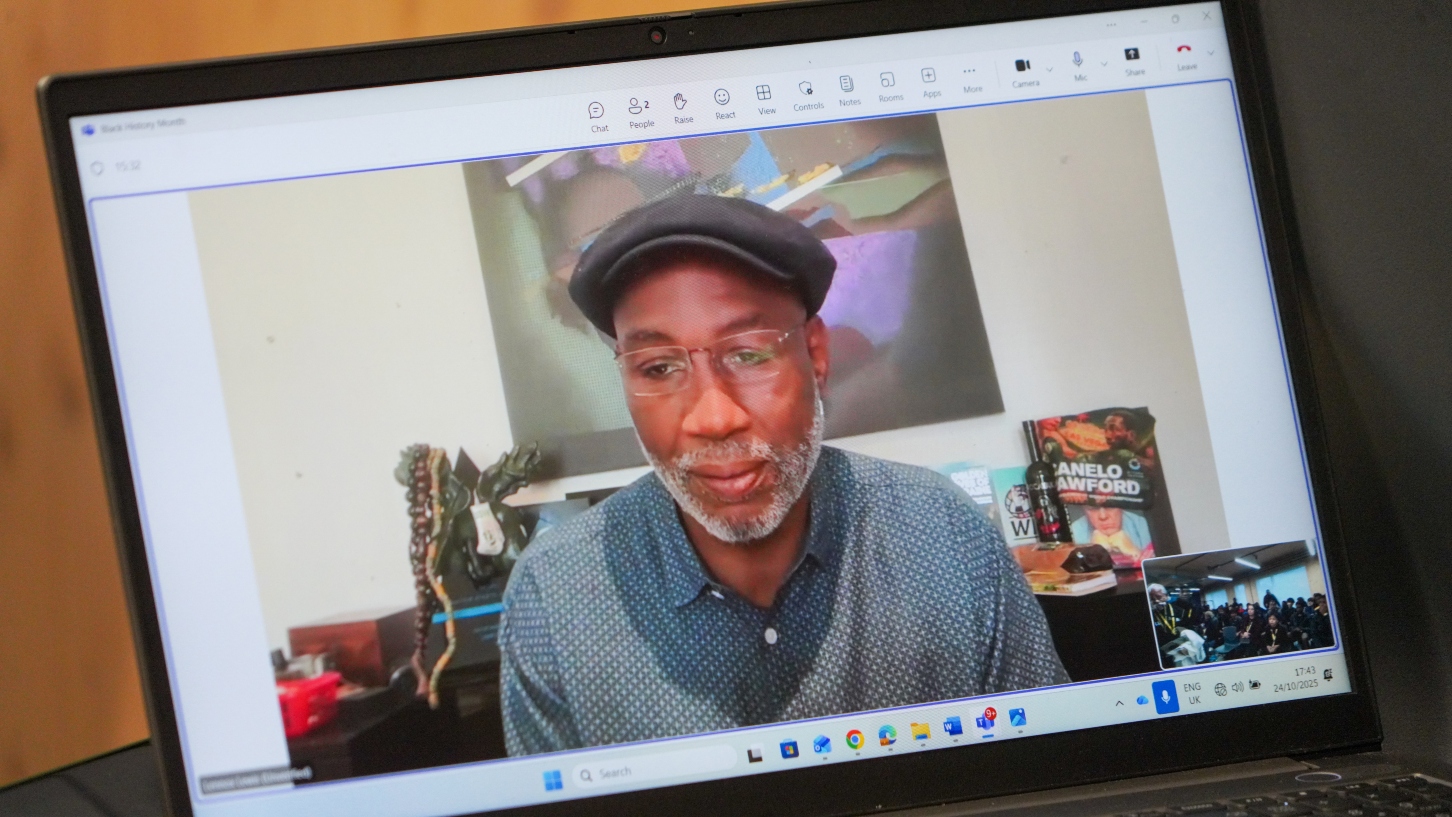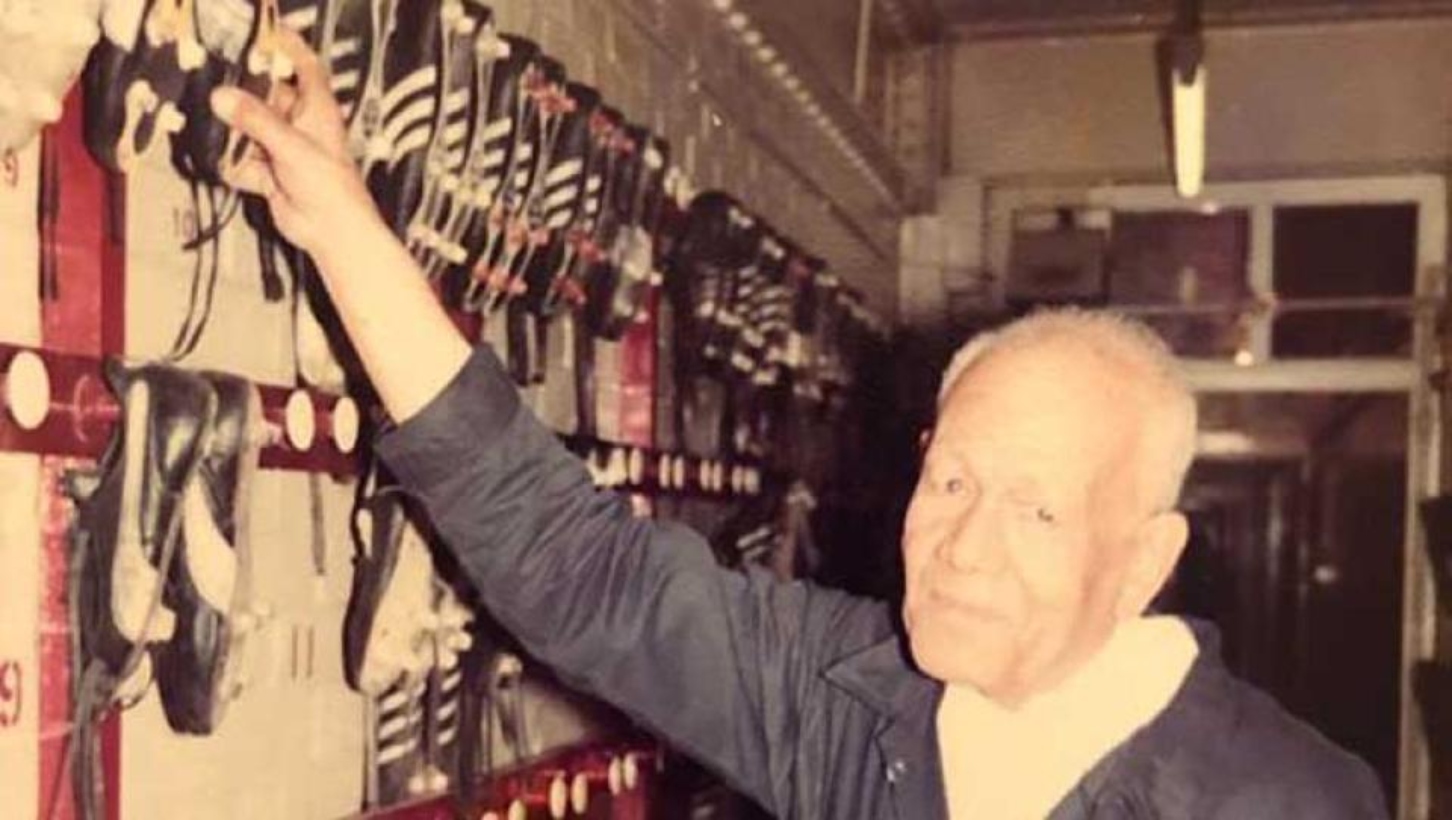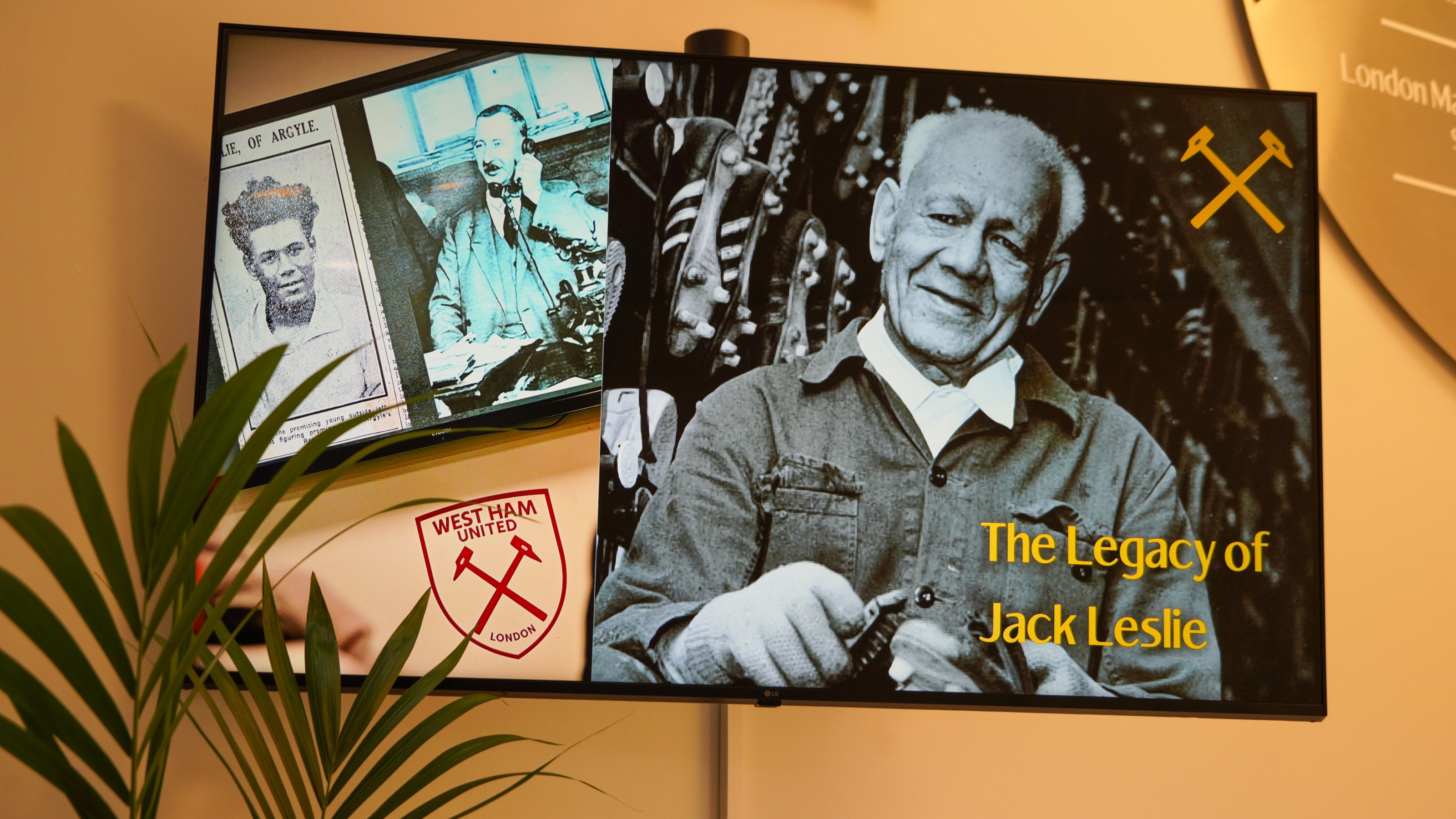The West Ham United Foundation joined community members, young people and special guests in October to celebrate the extraordinary legacy of Jack Leslie, the first Black footballer ever to be selected for England.
The event, which was also attended by participants of programmes such as Premier League Kicks and members of Leslie’s family, was made even more special by the presence of legendary heavyweight boxing champion Lennox Lewis, who joined the celebration remotely to pay tribute to the Canning Town native’s impact on sport and society.
Leslie’s story is one of both achievement and injustice. Born in 1901, Leslie was a prolific forward for Plymouth Argyle, scoring more than 130 goals for the club. In 1925, he was selected to represent England, a historic moment that should have seen him become the first Black player to wear the Three Lions. However, after his selection was announced, his name was quietly removed from the squad list, a decision widely believed to have been made because of the colour of his skin.
A century later, his story is finally being given the recognition it deserves. Events like this one not only highlight the challenges Leslie faced, but also celebrate the progress that his courage helped to inspire.

Speaking on the night, Leslie’s granddaughter Lesley Hiscott shared her pride in seeing her grandfather’s name remembered in such a meaningful way.
“It’s amazing how after all this time my grandad is finally getting the recognition he so richly deserves,” she said. “Without people like my grandad, it wouldn’t be so easy for young Black people growing up now to have these opportunities. He paved the way and made it so that future Black people could climb the ladder. He was a pioneer and we’re very proud of him.”
Special guest Lewis also paid tribute to Leslie’s trailblazing legacy, drawing parallels between their journeys as Black athletes overcoming barriers.
“Jack paved the way for others to reach their goals, and he would have experienced something that even I wouldn’t have experienced,” the Seoul 1988 Olympic gold medallist said. “Anybody who has a goal of being any type of athlete, it all starts with a dream and possibilities.”

Lewis spoke candidly about his early life in east London and his own journey to becoming a world champion.
He said: “Growing up in east London, any time a West Ham game was on I wasn’t allowed out - I had to stay in because of all the crowds and the trouble. The streets can be a dangerous place, and you’ve got to mind what you’re doing. My focus was always on more positive stuff.”
Lewis also shared how his cultural roots and identity shaped his journey to success.
He said: “While I was training, I said, ‘I’m going to wear locks’. I wanted to be the first boxer to wear locks and win the heavyweight championship of the world. The culture, the music, the food - it’s in me, and my mum is my chef, just pure Jamaican food.”

Throughout the evening, guests heard from a range of speakers and young participants involved in the Foundation’s community programmes, including Premier League Kicks, which provides free football sessions and mentoring opportunities for young people across east London and Essex. The stories shared reinforced how Leslie’s example continues to inspire today’s generation to stay positive, work hard and believe in their potential.
Speaking about the event, one participant said: “Hearing about Jack’s story and seeing people like Lennox Lewis talk about what he stood for really inspired me. Jack faced so many challenges but still achieved amazing things, and that gives me motivation to keep working hard.”
A key theme of the event was the power of representation and how role models like Leslie continue to break down barriers in sport. His legacy now stands as a symbol of inclusion, equality and progress.
During the 1960s and 1970s, Leslie returned to West Ham United in the boot room after being offered the job by manager Ron Greenwood, who recognised Jack as a brilliant player. Leslie would look after the boots of England World Cup winners and Hammers legends Sir Geoff Hurst, Bobby Moore and Martin Peters.
The unveiling of his statue outside Plymouth Argyle’s Home Park in 2022 marked a turning point in public recognition of his story. The Foundation’s celebration built on that momentum, ensuring that his name remains an enduring source of inspiration for young athletes from all backgrounds.
